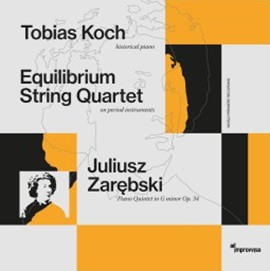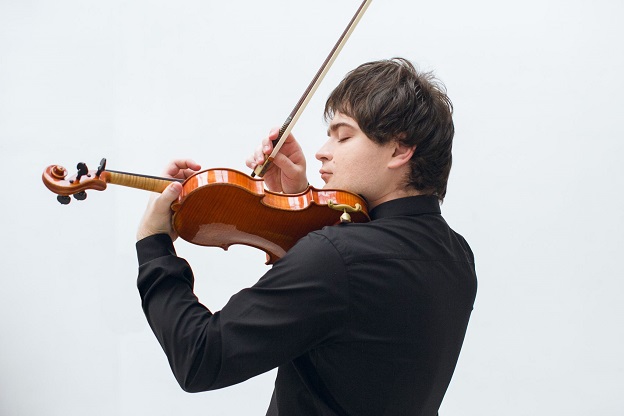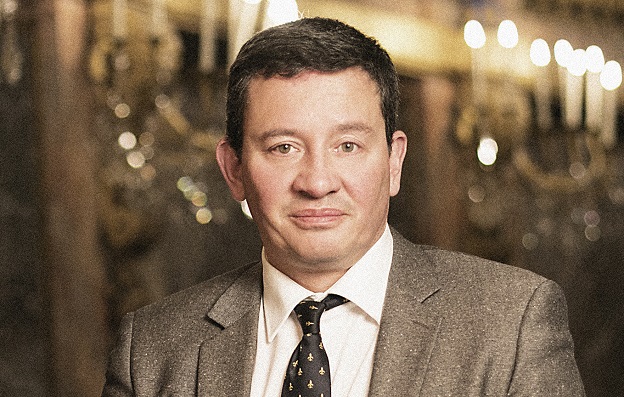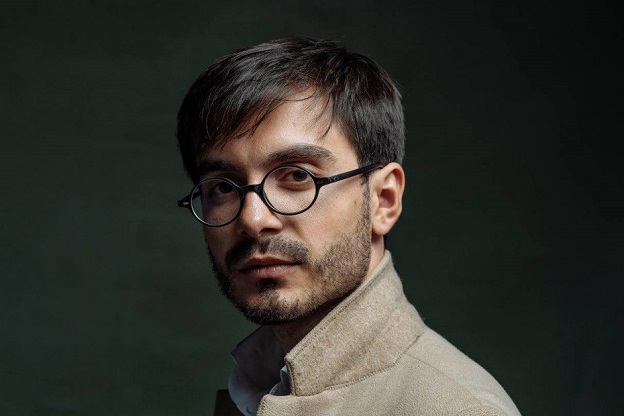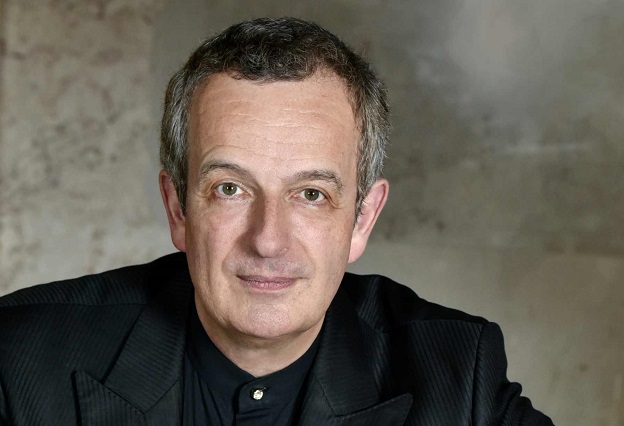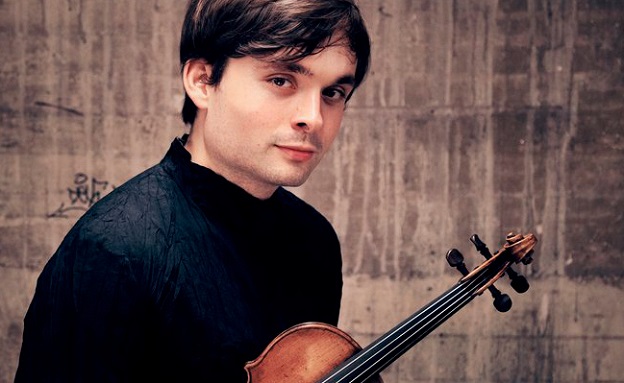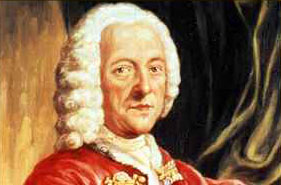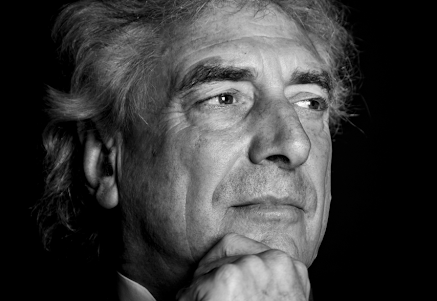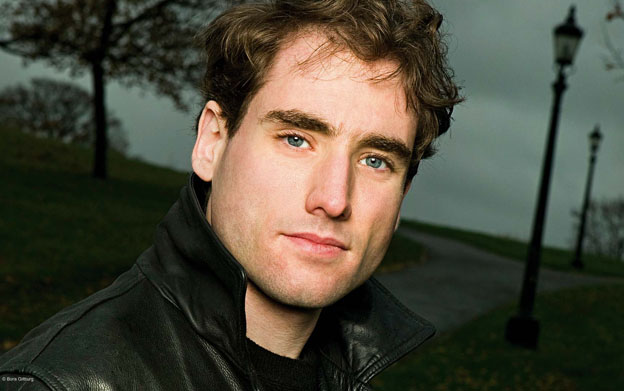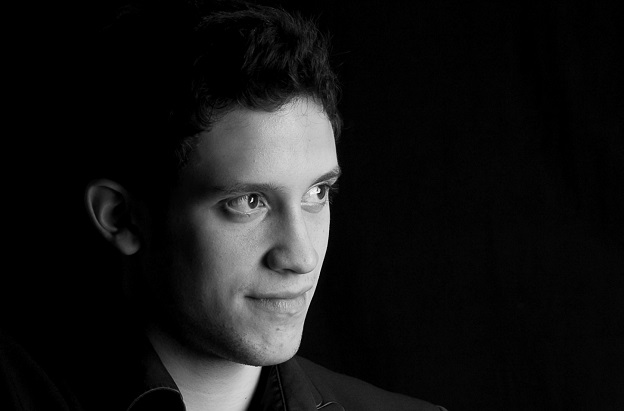Herr Pochekin, haben Sie diese beiden Werke zum ersten Mal eingespielt?
Ja, ich habe sie zum ersten Mal aufgenommen, aber natürlich habe ich sie schon viele Male mit verschiedenen Orchestern aufgeführt. Die Aufnahme fand in der Tchaikovsky-Konzerthalle der Moskauer Philharmonischen Gesellschaft statt. Read More →
Laurent Brunner, seit 2007 Direktor von Château de Versailles Spectacles, hat 2018 ein hauseigenes Plattenlabel gegründet. Der immer nach Exzellenz strebende Lothringer knüpft in Versailles an den Erfolg an, den er mit einem Festival in Verdun und später mit Le Carreau in Forbach hatte. Im Jahr 2022, vier Jahre nach seiner Gründung, wurde Château de Versailles Spectacles von den International Classical Music Awards (ICMA) zum Label des Jahres gewählt. Remy Franck traf Laurent Brunner zu einem Interview (die englische Fassung ist hier).
Ihr Plattenlabel wurde 2018 gegründet, also rund zehn Jahre nach der Gründung von Château de Versailles Spectacles, einer privaten Tochtergesellschaft der öffentlichen Einrichtung. Welche Bilanz können Sie ziehen?
Es ist eine etwas ungewöhnliche Bilanz, weil sie zwei Jahre der Pandemie umfasst. Auf der einen Seite gab es einen Verkaufsrückgang und auf der anderen Seite den Übergang zum Digitalen, der dadurch verstärkt wurde, dass es fast überall keine Konzerte mit Publikum mehr gab. Read More →
Wer ist Sebastian Androne?
Sebastian Androne ist ein Vater, ein Ehemann, ein Sohn und ein Komponist, der Musik für Konzerte, Film, Theater, Videospiele und Medien schreibt. Read More →
Kapustins Musik verbindet Jazz und Klassik. Das muss der Interpret dann auch wiedergeben können. Ist das eigentlich schwierig?
Ich bin als klassischer Pianist aufgewachsen und habe eine ganz klassische Klavierausbildung genossen. Durch meinen Schlagzeuglehrer, den ich schon als kleiner Junge hatte, habe ich wiederum den Jazz kennengelernt und daneben auch afrikanische und lateinamerikanische Musik. Als Teenager habe ich dann beides miteinander verbunden und neben der Klassik auch viel Jazz gespielt, darunter Gershwin und eben auch Kapustin. Read More →
In der Musikwelt gibt es die sogenannten Stars und es gibt eine Unmenge Künstler, die nicht unbedingt jeder kennt. Sie gehören zu letzteren, als jemand, der ganz ernsthaft arbeitet, viele Konzerte gibt und viele Platten macht, und ich nehme mal an, dass Sie den Medienrummel auch nicht mögen…
Ich las einmal in einem Artikel, ich sei der Antistar der Szene, und das gefiel mir eigentlich ganz gut, denn mit diesem Attribut kann ich besser leben als mit allem anderen. Für mich stellt sich zunächst die Frage: Für wen mache ich die Musik und für wen will ich Musik machen? Read More →
A native of Mallorca you play around the world, but it looks like a great part of your career takes place in the United States. Why?
As a teenager, I moved to New York City to study at The Juilliard School. I immediately fell in love with the energy of the city and have been incredibly fortunate to develop wonderful performing opportunities in the US. Read More →
Herr Prof. Koch, wenn man vom musikalischen Sujet der Kantate spricht, beherrscht eigentlich immer Johann Sebastian Bach die Unterhaltung. Warum ist das so?
Das hat natürlich mit der unglaublich intensiven Bachforschung zu tun, die seit über 200 Jahren betrieben wird. Felix Mendelssohn Bartholdy hat mit der ersten Aufführung der Matthäuspassion nach Bachs Tod 1829 den Wagen ins Rollen gebracht. Auch das Interesse an Bachs Kantaten erwachte damals. Wobei diese Stücke ja eigentlich nicht zur ständigen Wiederaufführung gedacht waren, sondern in die Schublade wanderten, wenn sie in dem Gottesdienst, für den sie komponiert wurden, erklungen waren. Read More →
Herr Valentiny, Sie haben u.a. die Architektur für das Kleine Festspielhaus in Salzburg und ein Open Air Amphitheater in Trancoso in Brasilien gestaltet resp. mitgestaltet. Daneben gibt und gab es noch andere Projekte für moderne Konzerthäuser. Was interessiert Sie so besonders an eben dieser Konzerthausarchitektur?
Einen Konzertsaal oder ein Konzerthaus zu entwerfen und zu bauen, ist immer eine besondere Herausforderung, und das in mehreren Hinsichten. Da ist zum ersten natürlich die Funktionalität. Hier soll eigentlich alles optimal aufeinander abgestimmt sein. Das heißt, es gilt nicht nur die Struktur der Räumlichkeiten zu beachten, sondern auch deren Funktionalität. Read More →
Mr. Giltburg, how did the decision come about to present a complete recording of all Beethoven piano sonatas for the Beethoven Year?
Good day! I think that Beethoven’s 250th anniversary itself was the main catalyst. I still remember the moment I first thought about the project; I was in South Korea in early 2019, pacing around my hotel room, and all of a sudden some kind of switch flipped in my mind, and my world changed from one in which there was no way I would have played all the sonatas ever, to a world in which it was 100% certain that I would (I don’t have an explanation for the switch flip…!). Read More →
Max Asselborn, Sie sind nun fest als Trompeter beim Schwedischen Radio-Symphonieorchester in Stockholm angestellt. Dies nach einer mehrmonatigen Probezeit. Wie sieht denn so ein Probejahr aus und worauf wird man bewertet?
Die Bewertungskriterien sind vielschichtig. Und unterschiedlich pro Instrument. Es gibt objektive und subjektive Faktoren, die bei der Bewertung ausschlaggebend sind, aber genau kann man das nicht trennen. Der Kandidat muss passen, sowohl klanglich, wie auch musikalisch. Aber neben den musikalischen Fähigkeiten spielen die sozialen Fähigkeiten eine entscheidende Rolle. Ein Orchester ist ein soziales Gebilde, da gibt es viele unterschiedliche Charaktere und eine ganz besondere Dynamik. Und die ist wiederum bei jedem Orchester verschieden. Read More →




